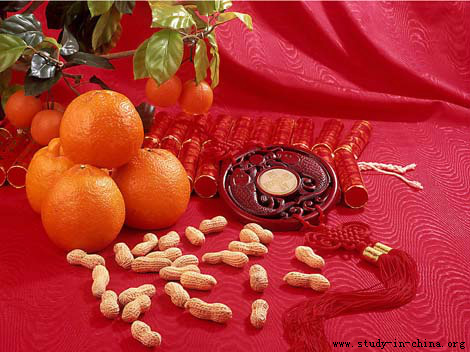Ritualized gift exchanges have been a part of Chinese culture for centuries. When visiting someone's home, you traditionally take a gift. Many of those same gifts may work well during a western-style gift exchange. In other cases, Chinese gifts may be more appropriate.

Ritualized gift exchanges have been a part of Chinese culture for centuries. When visiting someone's home, you traditionally take a gift. Many of those same gifts may work well during a western-style gift exchange. In other cases, Chinese gifts may be more appropriate.
Fine Fruit
A traditional gift is very high-end fruit. This includes exceptionally large apples and Asian pears, boxed and individually wrapped. In some cases you may be able to buy a single piece of fruit. Sometimes the fruit will have a stencil on it with a Chinese character for luck or wealth to lighten the color of the fruit peel during growth.
Boxed Drinks
Another common Chinese gift, often available in Chinese or other Asian markets are boxes of canned drinks. Popular drinks include canned iced coffee, teas, fruit juices, and coconut juice. These types of gifts are so common that many soft drink manufacturers specially package their products in gift boxes in auspicious colors like red and yellow.
Seasonal Foods
When available, seasonal foods like moon cakes can be a good gift. Fine packaged and sealed moon cakes can keep for months, thus increasing their availability for gift-giving. As with drinks, many seasonal food manufacturers create gift boxes to encourage the giving of their products.
Jades
Jade can be good for a gift exchange. Although fine jade can cost tens of thousands of dollars, inexpensive jade can cost $5 to $10. You can find inexpensive jade in some Asian markets, Chinese gift shops, or through many online merchants. Brightly-colored, inexpensive jades are often dyed. Natural inexpensive jades are often gray or white, with some having brown or yellow streaks.